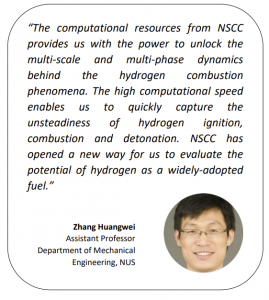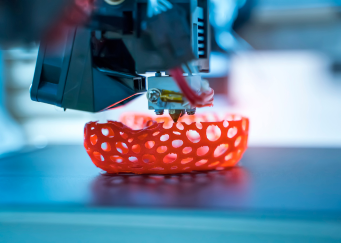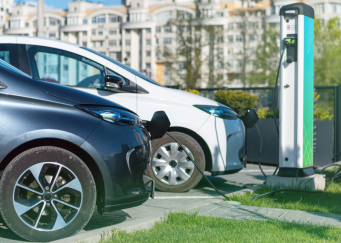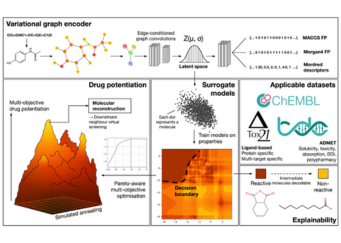NUS researchers leveraging supercomputing to explore hydrogen combustion inhibition methods in order to prevent hazards from occurring.
 In recent years, hydrogen fuel has received increased interest due to the increasing need to reduce greenhouse gas emissions from fossil fuel combustions. However, the usage of hydrogen poses a series of challenges and safety issues as accidental hydrogen ignition and combustion could lead to severe hazards. Effective hydrogen combustion inhibition methods thus needs to be explored to prevent hazards from occurring.
In recent years, hydrogen fuel has received increased interest due to the increasing need to reduce greenhouse gas emissions from fossil fuel combustions. However, the usage of hydrogen poses a series of challenges and safety issues as accidental hydrogen ignition and combustion could lead to severe hazards. Effective hydrogen combustion inhibition methods thus needs to be explored to prevent hazards from occurring.
A team of researchers at the Department of Mechanical Engineering at National University of Singapore are utilising NSCC’s high performance computing resources to study the possibility and effectiveness of fine water mists (less than 20 micrometers) in inhibiting hydrogen combustion based on high-fidelity numerical methods.
Working around 3 different hypotheses, namely hydrogen deflagration flame in fine water mists; hydrogen detonation and inhibition with fine water mists; and turbulent hydrogen combustion, the team aims to make use of the results obtained to lay a solid foundation on the systematic understanding and improvement of the safety of hydrogen usage as a fuel.
The findings will provide scientific evidence for the feasibility of widespread hydrogen adoption and application worldwide to echo the initiative of CO2 emission reductions.
To find out more about the NSCC’s HPC resources and how you can tap on them, please contact [email protected].
NSCC NewsBytes February 2022
Other Case Studies
Using Digital Twin Technology to Optimise the Industrial 3D Printing Process
Researchers from the Institute of High-Performance Computing (IHPC) are utilizing supercomputers to create a digital twin that furnishes users with comprehensive information...
Accelerating electric vehicles research through HPC
Researchers from A*STAR IHPC leverage supercomputing resources to improve the performance of lithium-ion battery technology With the ever-increasing demand in energy storage...
Advancing Drug Discovery Research using NSCC HPC resources
Researchers from Nanyang Technological University (NTU) are applying variational graph encoders as an effective generalist algorithm in computer-aided drug design (CADD)....


